Flooding and hunger worsen dire conditions and displacement of 380,000 people in South Sudan
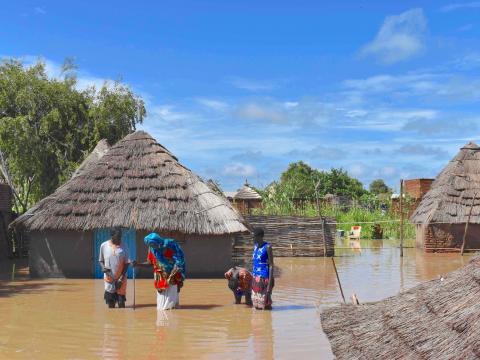
“We cannot go to school, have no food to eat, no place to sleep due to the floods. We live in the water and cannot play”, says 7-year old Akot Monybut from Kuajok town, a part of Warrap State.
A UN report stated that an estimated 380,000 people have been affected by flooding in areas along the River Nile, Sudd wetlands and the Lol and Sobat rivers since May.
Early seasonal rains have caused rivers to overflow their dykes and banks, flooding vast areas and settlements across the top of the country, with more heavy rains and flooding expected in the coming months.
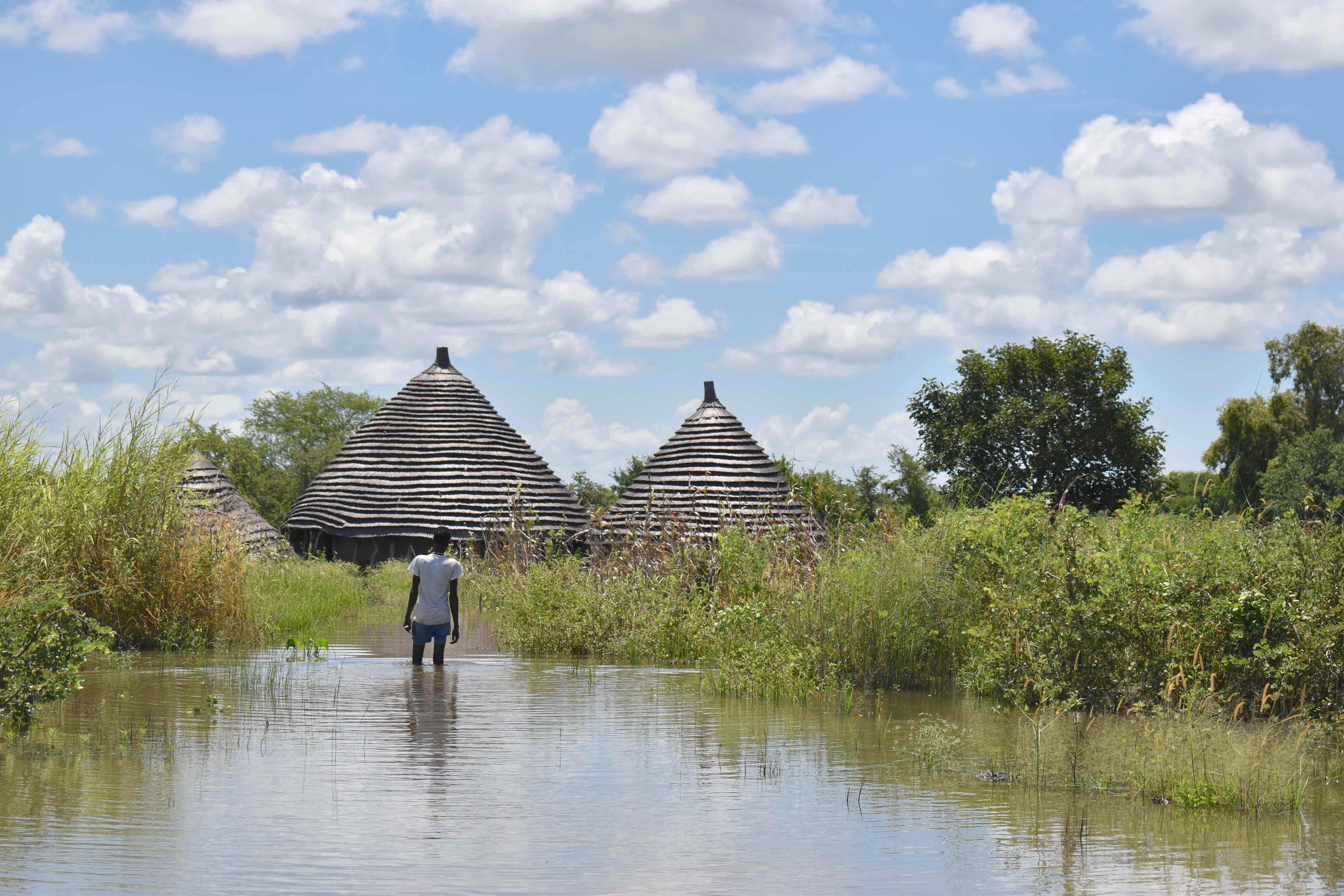
In a recent visit, Jemima Tumalu, World Vision’s Communications witnessed the destruction caused by the flood putting many villages underwater. “Many houses were destroyed. I saw a flooded church and submerged farmlands damaging crops”, she shares.
“The children swim in the dirty water fuelling worries of water-borne diseases. In one village in Gogrial West County, the people told me they have relocated three times in search of a higher ground”, she adds.
Many of the flood-affected people moved to higher grounds within their county, and plan to return home once the floodwaters recede. Some 100,000 people, mostly from Twic East, who were displaced by the 2020 floods, still have not yet returned home.
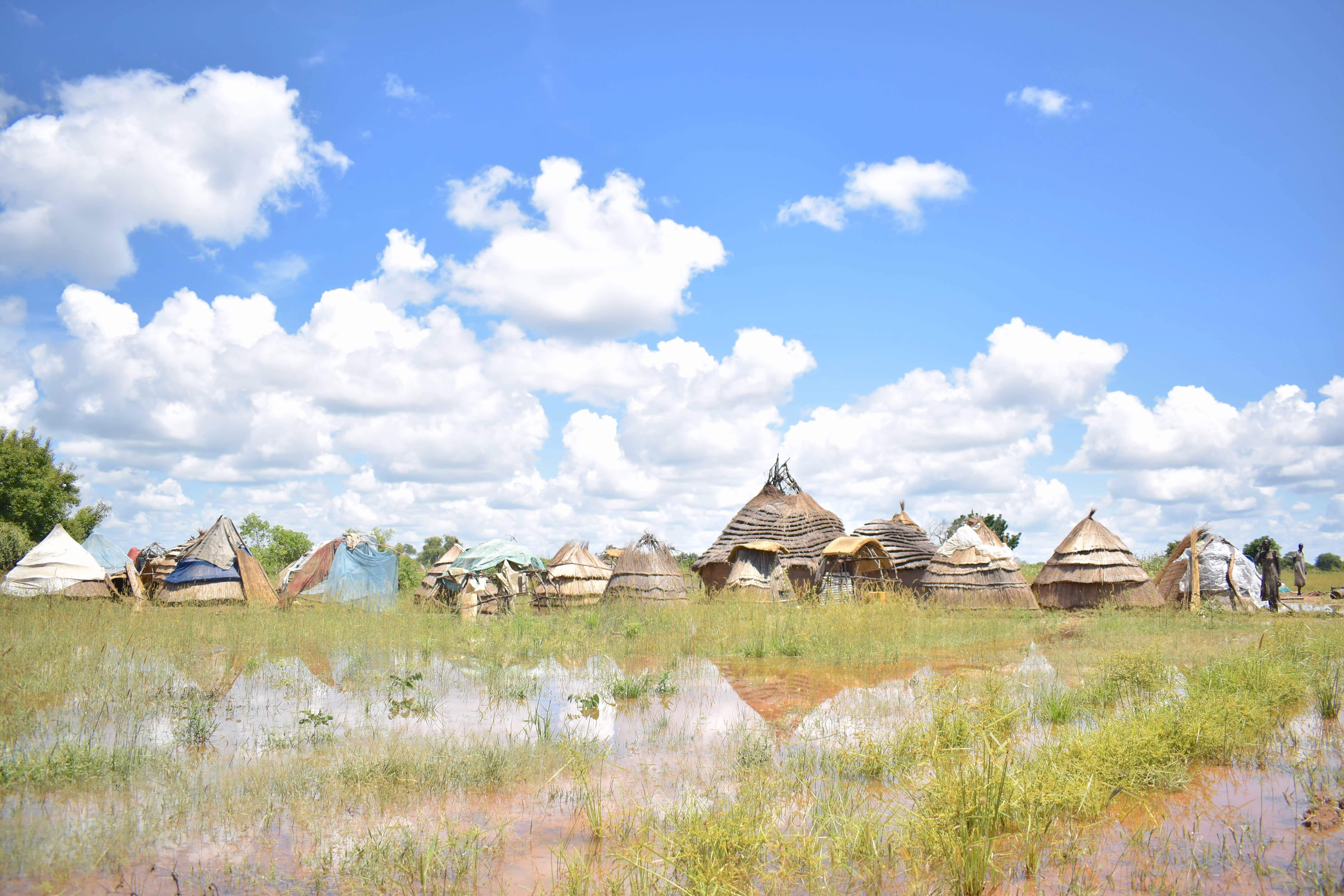
Many of them have sought safe refuge in Bor and Mangalla internally-displaced (IDP) camps according to humanitarian partners. Tumalu said the women complained about lack of basic needs like shelters, food, health services and closed schools. They said they have been in that state since July.
The children swim in the dirty water fuelling worries of water-borne diseases. In one village in Gogrial West County, the people told me they have relocated three times in search of a higher ground.
“A coordinated humanitarian response scale-up in the most affected states of Jonglei, Unity, Northern Bahr el Ghazal and Warrap was initiated to respond to the needs of affected people”, World Vision’s Humanitarian Emergency Affairs Manager Enid Ocaya shares.
World Vision is part of humanitarian teams doing rapid needs assessments have been conducted by World Vision teams with partners in eight of the affected counties between May and August, and many of whom are now responding to the immediate needs. Assessments are also underway in remote areas.
The early assessments identified priority needs such as food, emergency shelter and non-food items, water, sanitation, and hygiene kits, health and nutrition supplies and protection services, dignity kits, and fishing equipment for livelihood support.
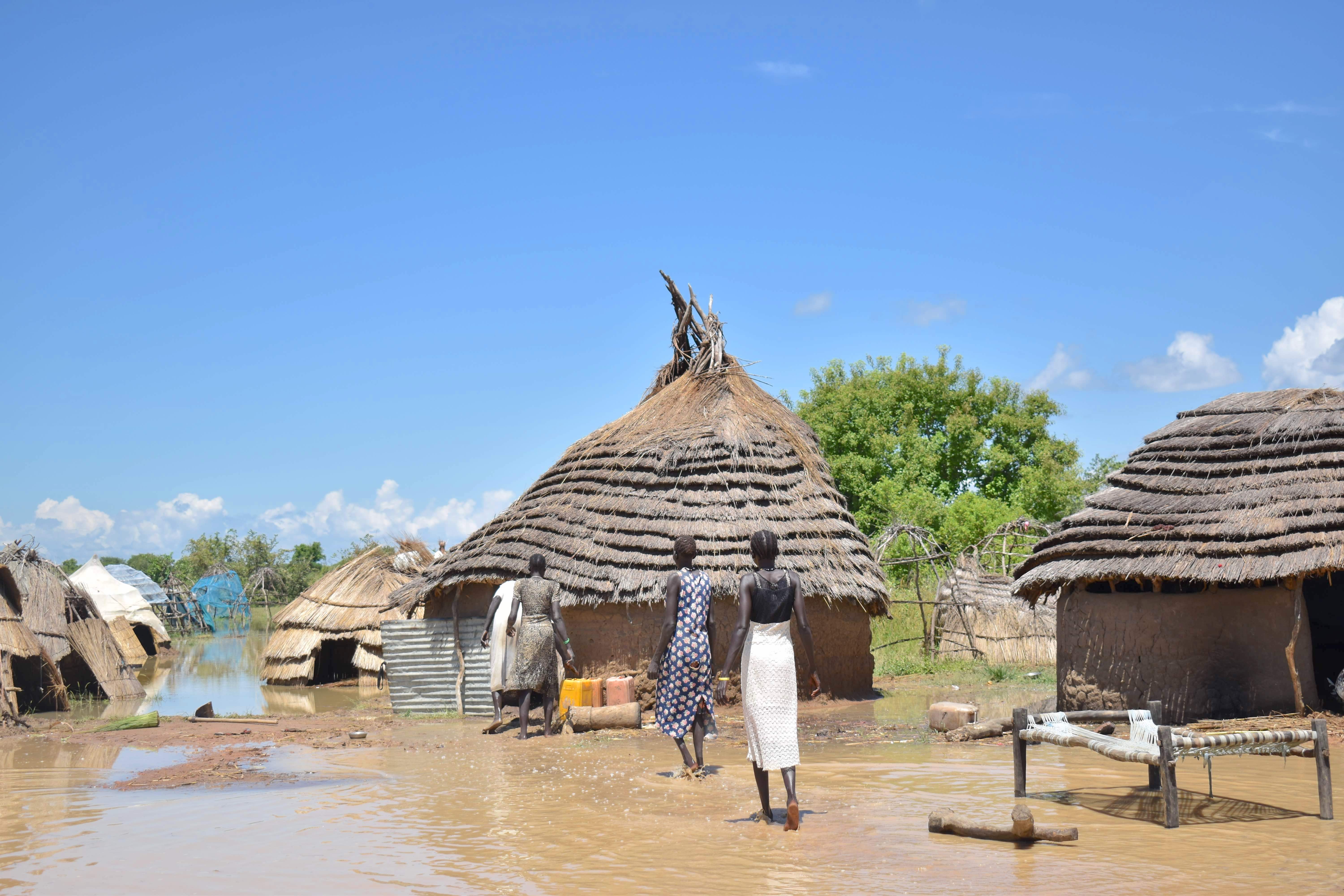
The floods have compounded the pre-existing dire humanitarian situation, including the hunger crisis and the COVID-19 pandemic in South Sudan. Across the 17-flooded counties in the above-mentioned states, UN reports that an estimated 415,000 are already in need of humanitarian assistance even before the rains have reached their peak.
World Vision is closely coordinating with partners and key UN agencies which include OCHA and WFP. Due to the gravity of the flooding situation, a Flood Operations Working Group has been convened by OCHA to collectively address emerging needs.
“Coupled with other disruptive events like inter-communal violence, sub-national conflicts, displacement, food insecurity and disease outbreaks, the severe flooding is making the conditions of people in communities an urgent emergency”, says Ocaya.
“These are compromising their livelihoods and exacerbating their needs, weakening the already fragile protective environment that compounds the people suffering especially women, children, those with disability and the elderly”, she concludes.
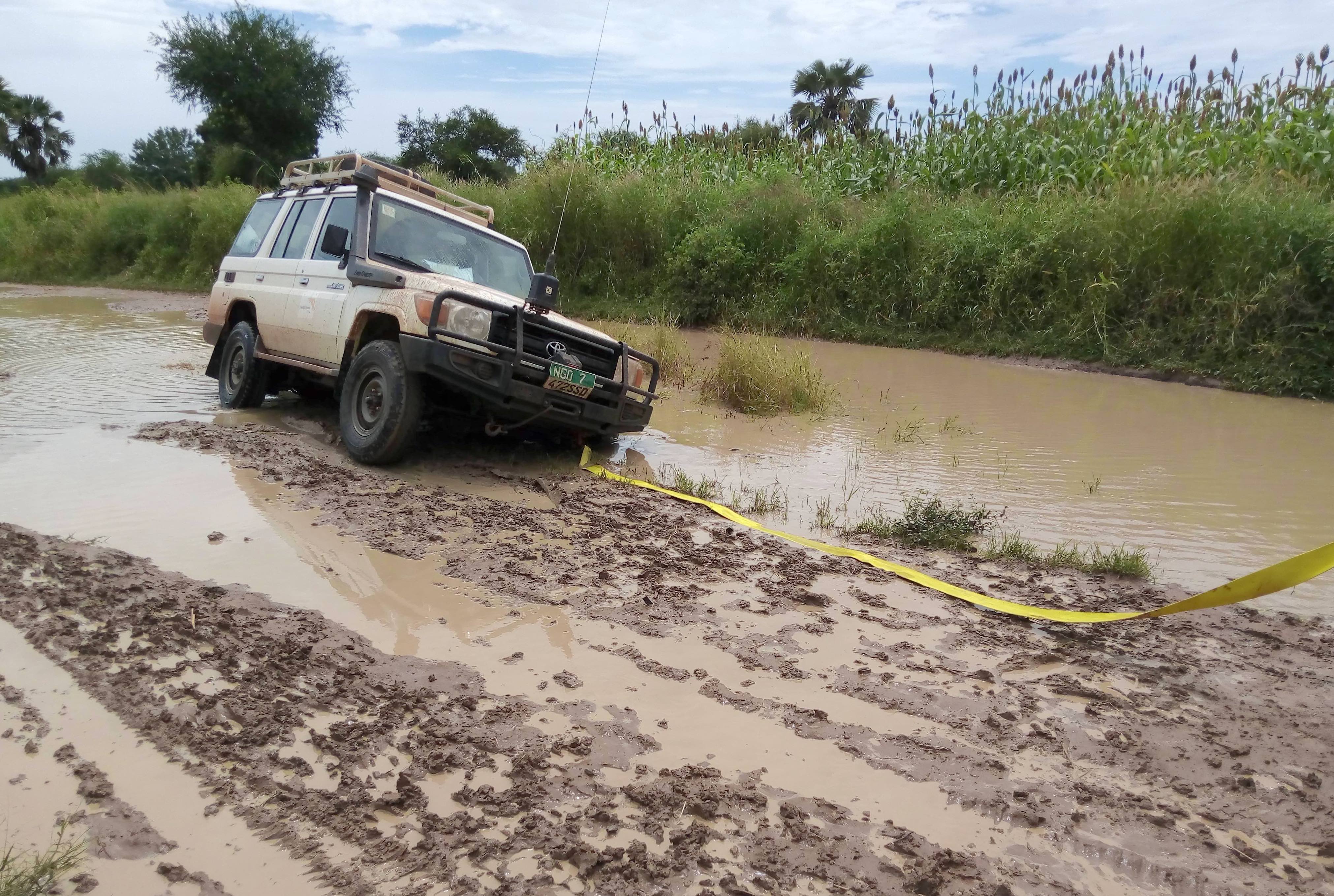
By Cecil Laguardia, Senior Manager for Advocacy and Communications with inputs from Enid Ocaya, HEA Manager I Photos by Jemima Tumalu, Communications Officer